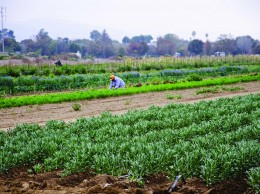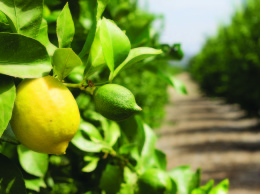The U.S. Department of Agriculture has created an emergency response framework to address a serious citrus disease affecting crops in several states, including California, U.S. Rep. Lois Capps of Santa Barbara announced Dec. 20.
The framework will allow the USDA and its partners to coordinate resources, share information and develop strategies to combat Huanglongbing, a bacterial disease spread by two species of psyllid insects, one of which is the Asian citrus psyllid.
“The Central Coast relies on agriculture and the citrus industry to drive our local economy,” Capps said in a statement. “This disease is negatively affecting local producers, and I am happy to see the USDA take steps to try to shut this disease down.”
Santa Barbara and Ventura counties are already quarantined, along with other areas in California. Ventura County, the No. 1 lemon-producing county in the nation, has more than 20,000 acres of lemons, oranges, tangerines and grapefruit, crops that generate roughly $215 million annually.
Santa Barbara has about 1,400 acres of lemons. The value of the crop in 2012 was more than $10 million.
“I am delighted to see USDA responding to the needs of the citrus industry in California by taking the lead with developing a multi-agency approach to combating this devastating disease,” Santa Barbara County Agricultural Commissioner Cathy Fisher said in a statement. “The funding that USDA will be providing demonstrates the agency’s commitment to finding effective solutions as expeditiously as possible.”
The bacterial disease poses no danger to humans or animals, but it has devastated millions of acres of citrus crops throughout the United States and abroad.






 Print
Print Email
Email

















